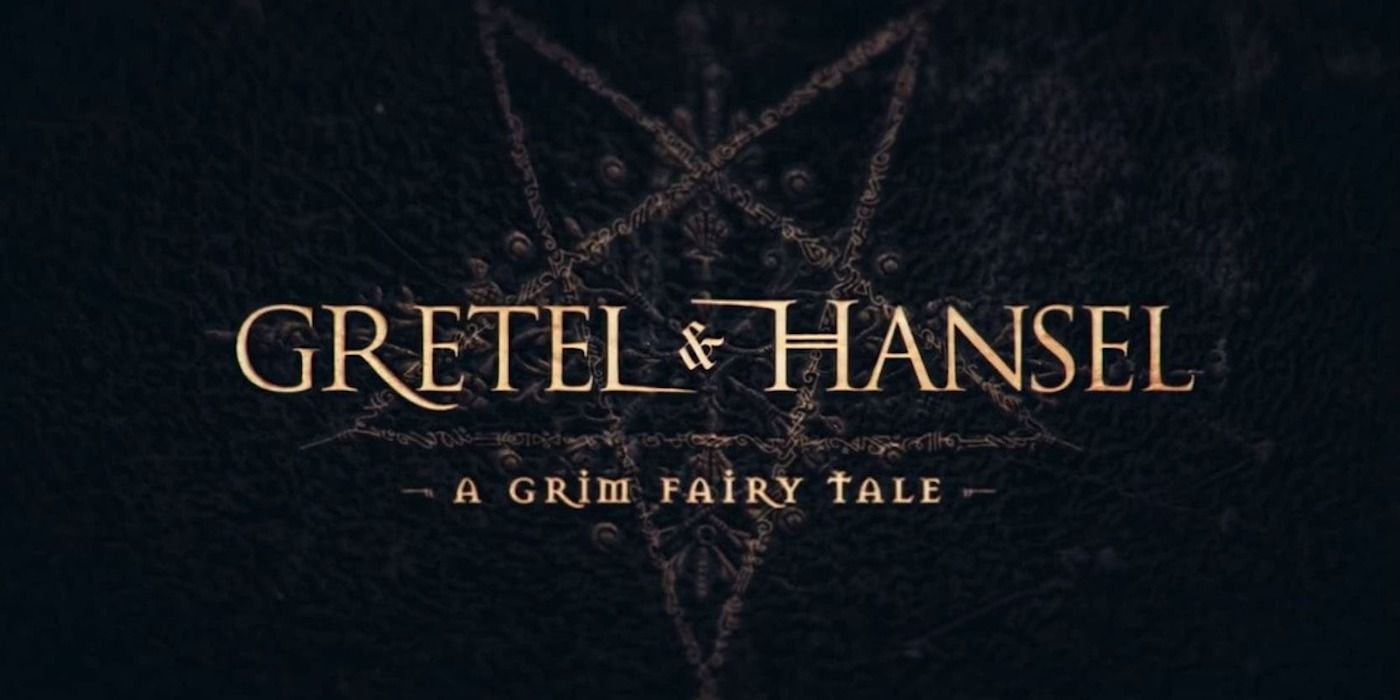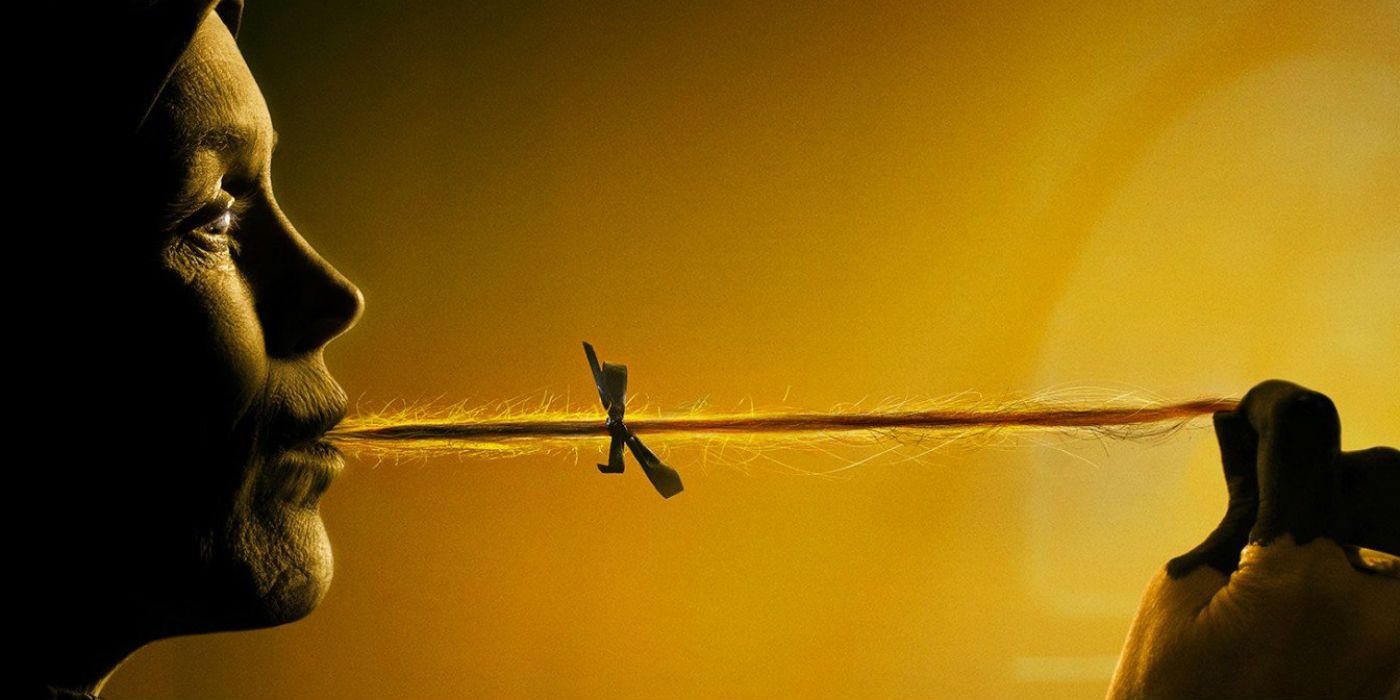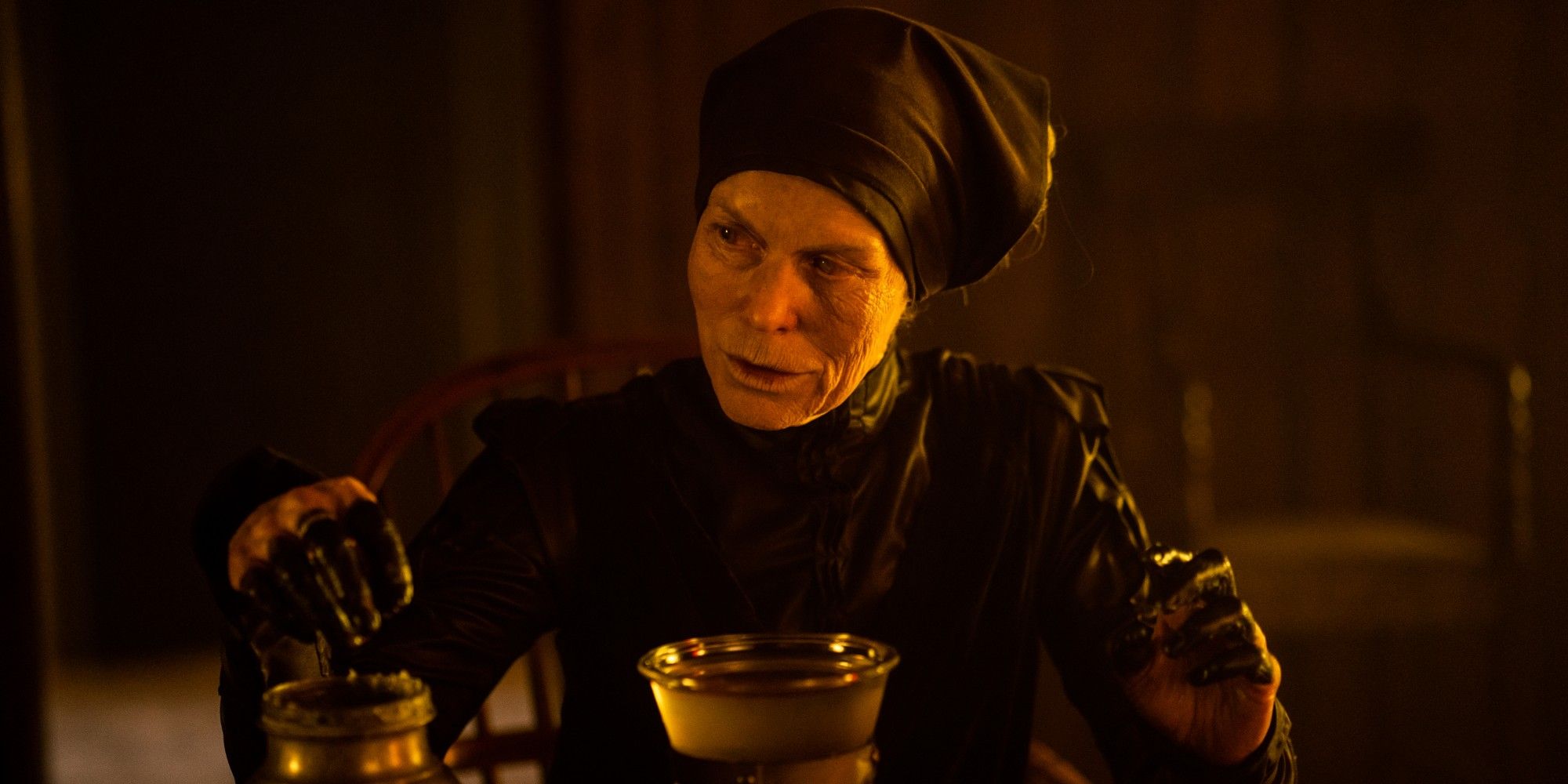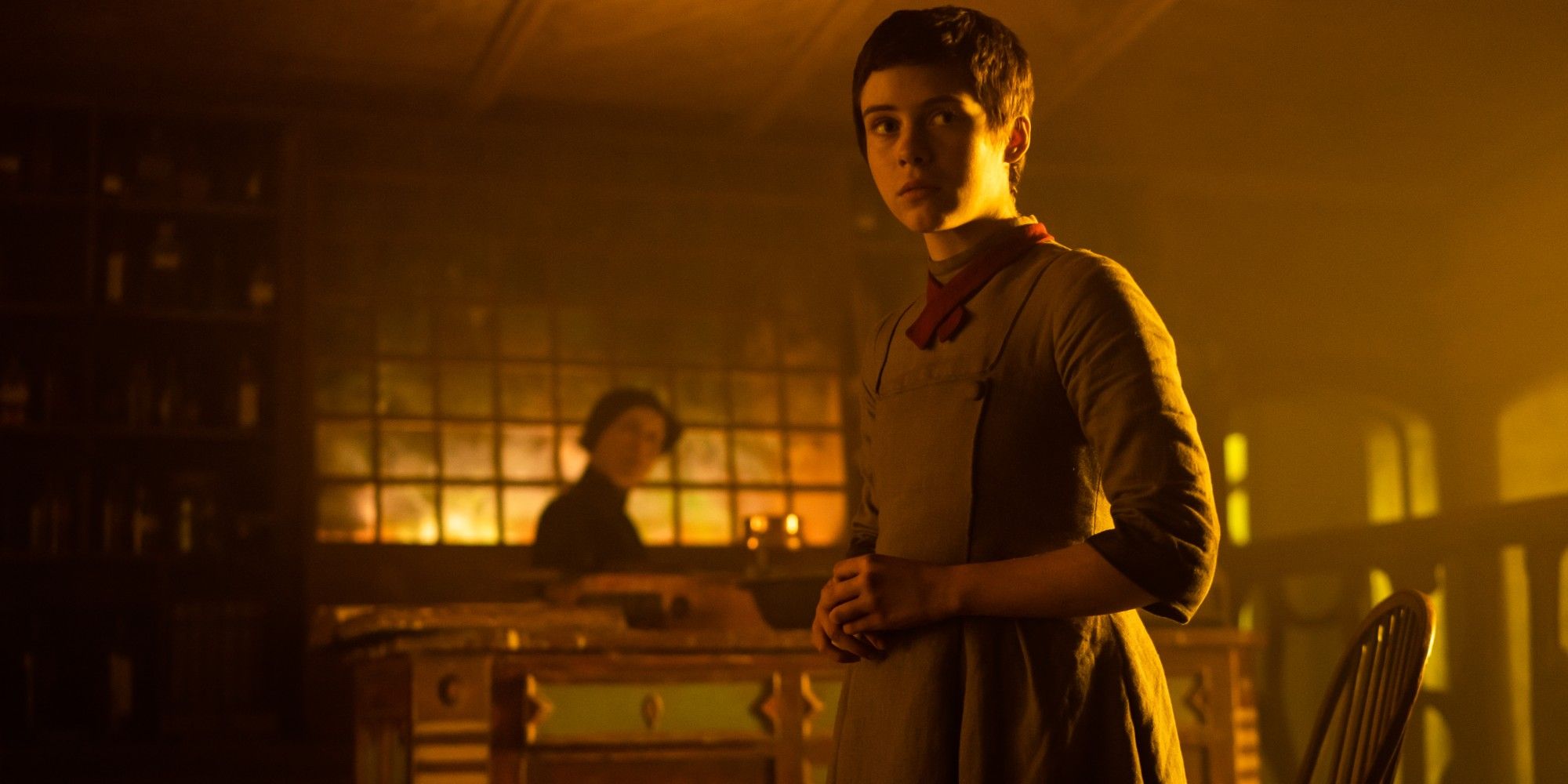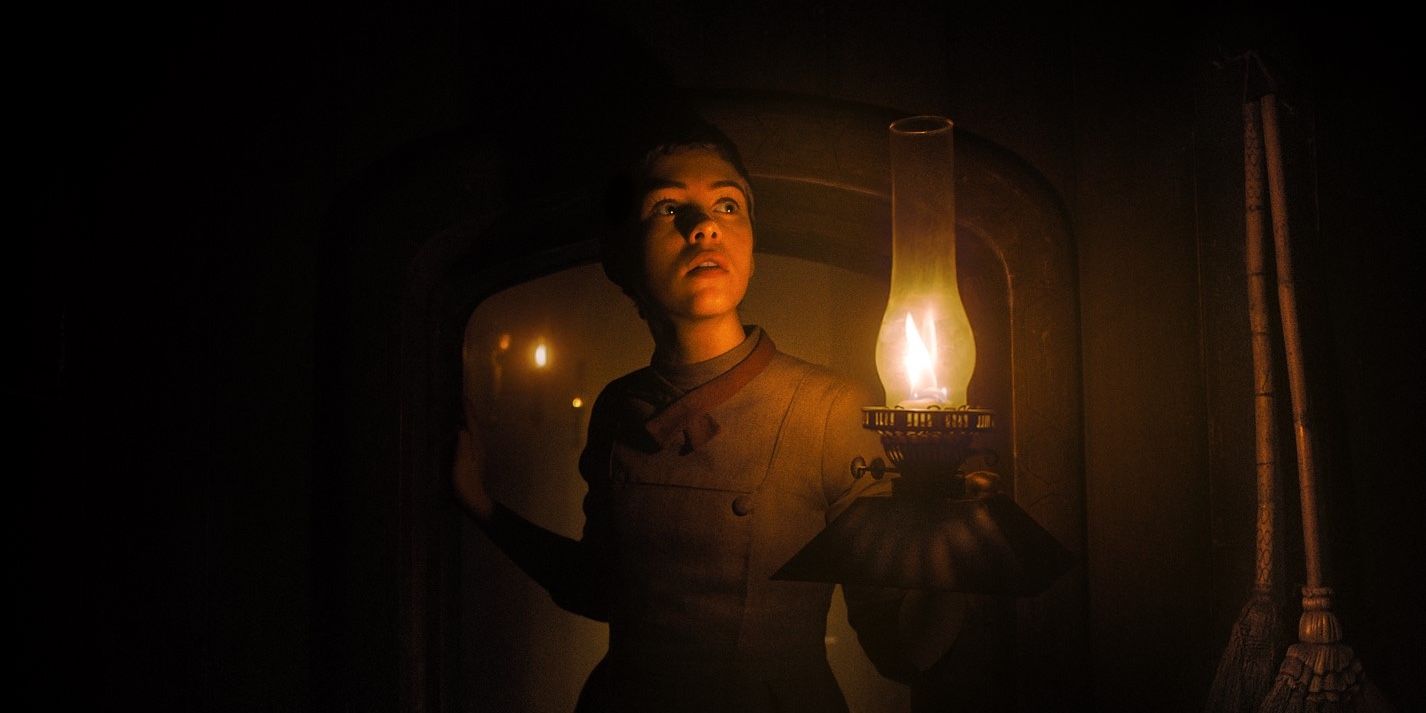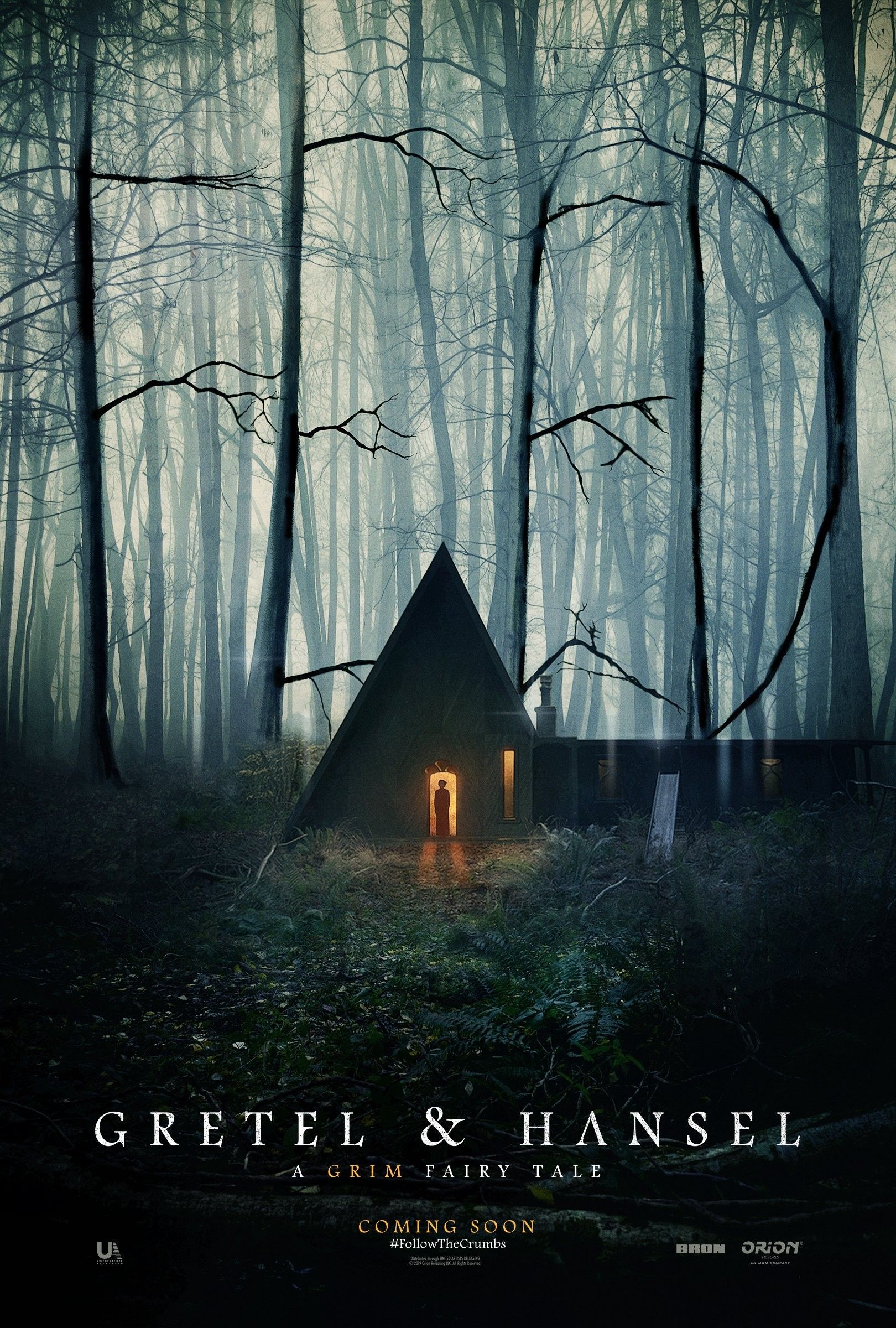Director Osgood Perkins is quickly earning a reputation as one of the hottest, most provocative directors in Hollywood. After paying his dues as an actor, he returned to his true passion, writing and directing. His first two films, The Blackcoat's Daughter and I Am the Pretty Thing That Lives in the House both earned strong critical praise, and now he's back with Gretel & Hansel, a sincere and frightening take on the classic fairy tale.
This latest version of the timeless story sees a pair of siblings, teenage Gretel and her younger brother Hansel, roaming through the countryside in search of food and shelter. They take refuge in a house owned by a kindly old woman (Alice Krige) who is clearly more insidious than she initially seems. Sophia Lillis delivers a stirring coming-of-age performance as Gretel, while newcomer Sam Leakey impresses in his cinema debut. Krige herself is terrifying as the wicked witch, and director Perkins captures the story with a harrowing intensity that is undeniably true to the source material.
While promoting the release of Gretel & Hansel, Osgood Perkins spoke to Screen Rant about working on the new movie, casting its leads, and the power he finds in the PG-13 rating. He also discusses his trajectory in Hollywood, from being a veritable prince (he's the son of Anthony Perkins and Barry Berenson) to feeling unfulfilled as an actor before finally rediscovering his love of film behind the camera. He also briefly teases his next project as writer/director, an episode of CBS All Access' The Twilight Zone.
Gretel & Hansel hits theaters on January 31.
Your movies really transport the viewer in a way that many attempt, but few truly succeed.
Thank you Zak, I really appreciate that.
I want to get to the movie, but first, I want to introduce you to the Screen Rant viewer. You've had a noteworthy career because you've started out as an actor, and before that, obviously, you're the son of one of the greatest of all time. And then you start writing and then directing. Can you talk a bit about your trajectory through the business?
I guess my trajectory is a bent and crooked one. But it's led me to the place I'm supposed to be, like all bent and crooked paths probably do. And I guess I wouldn't trade my bent and crooked path for a straight one, so here we are. The long and the short of it is, as a 13 or 14-year-old kid, I had a revelation while watching Beetlejuice. That was my obsession when I was about 14. The long tracking shot at the beginning with the titles, where they're tracking over the town, and it dissolves and you realize you're tracking over the model of the town that they make in the attic, and then the spider crawls over the top of the house, and then the hand reaches down and picks the spider up... Seeing that bit when I was 13 or 14, it was really an epiphany. It was literally the Deus Ex Machina. It was the hand of God saying, "I made this. This was done on purpose." Following that, it was the cinema of Stanley Kubrick; the director was so present. You felt like you were being handled and treated to an experience on purpose; it was deliberate, like someone had actually made every decision to make the movie the way it was.
That's such an amazing way to look at movies. It's like they really do reach through the screen and address you.
It became my passion. I went to film school for a year, and then kinda... Life had its twists and its turns. My father died, and I had to deal and recover from that. And then my mother died, and I had to deal and recover from that. I suffered a couple of really staggering changes, let's say. "Losses" is easy to say, but real course changes hit me from the side. I rambled for a long time. Acting was something that, to be completely honest, it was sort of bullsh*t. It was a cop-out for me. It was sort of like, "Well, I can probably fake my way through this." It was something I did in high school. Obviously, my dad was so well known for it. I felt like it would be free, like I'm entitled to it, or something. It was impure, my desire to act. As such, it never felt right. So, as soon as I could get my head out of that and find my way back to what I wanted to do, the first thing I did was sit down and write The Blackcoat's Daughter. It was the first script I wrote by myself, for myself, with the idea of actually making it into a movie. And so, from there, it was about finding myself, 25 years later, knowing what I knew, and feeling what I had felt, and experiencing what I had experienced. To find my view, my take, my impressions of the world and people were far richer. It was almost like picking up from were I left off when I was a kid.
That's a tremendous story, and it brings us to Gretel & Hansel, which I feel is a really fresh take on the coming-of-age story. It's got a horror bent, and puts the female characters right in the center. It feels like a fairy tale, and all the dialogue is so meticulously crafted. I really like that style. Can you talk a bit about writing this movie?
The writing that I did, sort of uncredited, on the script, was largely the language, largely what people were saying. What I really reveled in, really enjoyed so much, was the feeling of, like, "Okay, we're in a fairy tale, and fairy tales are essentially educational. They're Socratic. They're meant to teach us something elemental, to tell kids how to be careful." In my version, everything that's said is supposed to be true, interestingly true, obliquely true; true in a way that's understandable to kids in some cases, but understandable to adults only in some other cases. For example, when Gretel says to the witch, "Our mother came upon hardship," and the witch says, "That's usually the first thing a mother comes upon." That was meant to be a little proverb, a little turn-of-phrase that felt elementally true and instructive. So, the idea that fairy tales are basically really beautiful, simple warnings to children: be careful out there, the world is f***** up and full of monsters. And here's how to protect yourself: don't trust people who build their houses out of candy! Those are not cool people! The idea that the language could be amusing and instructive in that way was really exciting to me.
Most of the movie has just these three actors, Alice, Sophia, and Sam. Was there a challenge in putting the whole movie on the shoulders of such a small cast, especially when two of them are such young actors? I mean, I think Sophia is really shaping up to be one of this generation's finest actors, and Sam just completely blew me away, and this was his first role ever.
I got him off of an iPhone audition that his mom made! I saw a lot of kids. You see lots of kids who are actors, and they know they are actors, and they become, essentially, uninteresting. Sammy is an eager eight-year-old kid from England who's really brilliant. He's really outgoing. He's a chess master. Like, a scary-good chess player. He's so elastic and ready and innocent, and everything is new. That, to me, felt like Hansel. That felt to me like Hansel, especially in comparison to the Gretel I imagined, who is world-weary, who has seen one-too-many things. She understands things on a more sophisticated level. She's stronger in her way. I love what you said about Sophia being on the cusp of something much bigger. She certainly is. Again, that's Gretel in this movie. They say casting is 90% of my job. That's certainly true, because once we got the right solution, the right chemistry, you can lean on that.
I love how there's really not much in terms of extraneous subplots to pad it out or turn it into Lord of the Rings, which so often happens with fairy tale adaptations.
Those are the three people in the fairy tale. As much as we could avoid adding extraneous armies and orcs and crossbows and bullsh*t, as much as we we could stay away from adding that stuff, as much as we could be closer to the original material, that's all I wanted. The original material makes people feel something. Whether they've heard the story or not, they know the story. That quality is in the movie. She says in one of her voice overs, "I don't know where I heard the story, but it's always just been the story for me." Leaning on those three actors in their very particular ways... Yes, Sammy Leakey couldn't be more different from Alice Krige. The dynamics were all really there. That's the story, of the three of them. Nobody needs to knock on the door and be another person.
Ha! Yeah, why throw extra pieces to make things "more conventional," right?
Every day, when the assistant directors and the production coordinators would say, "how many extras do you want today?" I'd say, "Zero." You'll notice there's not a single villager, person with a cart, person selling chickens. None of that sh*t you'd expect to see in a fairy tale or a movie that feels period like this. The idea is that everybody is gone, except for these people.
Straight to the point! We don't do B-plots here!
Why bother? Let's get to it!
I saw the movie by myself at a press screening, but I want to take my 12-year-old cousin to see it, I think she'd love it. It's scary, but it's also relevant to a girl her age in its themes and storytelling. And it's also PG-13. It's for kids, but not for kids. Or for all ages, I should say. I think kids can handle it, but you know how parents can be... Was there a temptation to push it to R-rated territory?
I'm really glad you asked. There was never a temptation to make it R. The temptation was, how do we make it PG-13? The power of the PG-13 rating for a picture like this is right along with what you're saying. Kids want to peek behind the curtain. They want to see what's dark around the corner. They want to know what's in the closet that they're not supposed to go in. They want to know what's in their parents' drawer that they're not supposed to look in. There's an element of, I don't want to see what I'm not supposed to see, but I have to see what I'm not supposed to see! When I was a kid, I had a photograph, I cut out a photograph of Linda Blair in The Exorcist. I had it at the bottom of my toy chest. Nobody knew it was there except for me. Every once in a while, I would pull all the toys out just so I could see it and then put all the toys back. There's that quality of, like, inching towards that which is too much. The PG-13 rating brought us right to that line. The aspiration, really, the highest hope, is just what you're saying. That people take their 12-year-olds, and the 12-year-olds go, "Geez, what is this?!" Because it's not like Scary Stories to Tell in the Dark, or it's not like It, which is rated R. It's not like those. The idea is to situate younger audiences in a different context, with a different rhythm, in a different set of expectations. I think that's essential for development. I'm not trying to be self-important or anything; I have kids myself. I have a 15-year-old, a 10-year-old, and a 6-month-old. I really want my 10-year-old to be able to say, "Oh my God, I made it." That's what Disney Land is, right? Disney Land is built on reassurance; the quality of, "I'm really scared, but I'm okay." I think that's a powerful gift to give to a child, the quality of, it's okay. It's okay to be really freaked out sometimes, it's okay. That builds resilience, emotional intelligence, all the good stuff. The PG-13 was always the goal, and I'm really happy that we got there.
Is it too soon to ask what your next project might be? Do you have pots on the stove?
There's so many things that are almost real. You know how it is in this weird business, especially these days, when almost nothing is real. The thing I'm doing next is an episode that I wrote and I'm going to direct, of The Twilight Zone, for Jordan Peele. It's a very far out thing that I can't really believe they're letting me do. But Jordan's been really supportive of everything that I'm trying, and CBS, somehow, is into it! (Laughs) The next thing you can expect is a really out of sight Twilight Zone episode.

